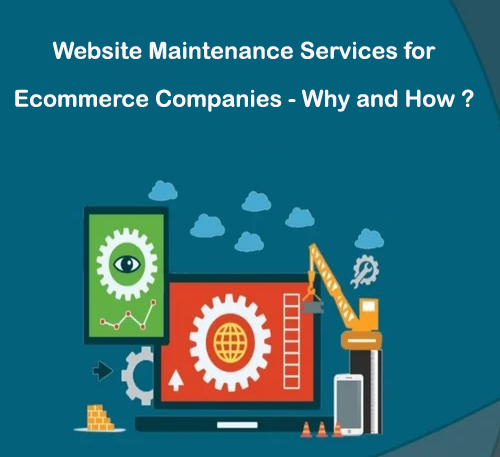Introduction
In the fast-paced world of e-commerce, having a well-maintained website is paramount for success. This blog delves into the significance of website maintenance services for e-commerce companies, highlighting the “why” and providing insights into the “how.” We’ll explore the key reasons why regular maintenance is crucial and offer practical guidance on how to ensure your e-commerce site remains competitive and secure.
1. The Importance of Website Maintenance for E-commerce:
a. Ensuring Reliability: E-commerce websites must be available 24/7. Regular maintenance helps identify and rectify issues that could lead to downtime, ensuring a reliable shopping experience for customers.
b. Security: E-commerce sites handle sensitive customer data, making them prime targets for cyberattacks. Maintenance includes security updates and measures to protect against data breaches.
c. Performance Optimization: Slow-loading pages and glitches can deter potential customers. Maintenance involves performance tuning to keep your site running smoothly.
d. Content Freshness: Keeping product listings, descriptions, and promotions up-to-date is essential for customer engagement and SEO.
2. The Components of E-commerce Website Maintenance:
a. Software Updates: Regularly update your e-commerce platform, plugins, and themes to patch security vulnerabilities and improve functionality.
b. Security Audits: Conduct periodic security audits to identify and address potential threats. Implement SSL certificates for data encryption.
c. Backup Systems: Regularly back up your website to safeguard against data loss due to hardware failure or cyberattacks.
d. Content Management: Continuously update and optimize product listings, descriptions, images, and metadata to enhance SEO and user experience.
e. Testing: Regularly test your website’s functionality, including the shopping cart, checkout process, and search functionality.
3. Outsourcing vs. In-House Maintenance:
a. Outsourcing: Hiring professional website maintenance services can be cost-effective and efficient. Outsourced experts are up-to-date with the latest technologies and security measures.
b. In-House: For larger e-commerce companies with specific needs, an in-house team can provide dedicated maintenance. However, this may be more expensive and require significant expertise.
4. How to Implement E-commerce Website Maintenance:
a. Create a Maintenance Schedule: Plan regular maintenance intervals to address different aspects of your website.
b. Backup Procedures: Set up automated backup systems to ensure data recovery in case of emergencies.
c. Security Protocols: Implement robust security protocols, including firewalls, intrusion detection systems, and monitoring tools.
d. Monitoring Tools: Use website monitoring tools to track website uptime, performance, and security.
5. Continuous Improvement:
a. User Feedback: Listen to customer feedback and adapt your website based on their suggestions and pain points.
b. Analytics: Utilize web analytics to identify areas of improvement, such as high bounce rates or cart abandonment.
Conclusion: The Key to E-commerce Success
Website maintenance services for e-commerce companies are not just a necessity; they are the linchpin of success in the digital marketplace. In this blog, we’ve explored the “why” and “how” of e-commerce website maintenance, emphasizing the critical role it plays in reliability, security, performance, and customer satisfaction. Whether you choose to outsource or handle maintenance in-house, the goal is the same: to ensure your e-commerce site remains a competitive, secure, and customer-friendly platform in the ever-evolving online retail landscape.





